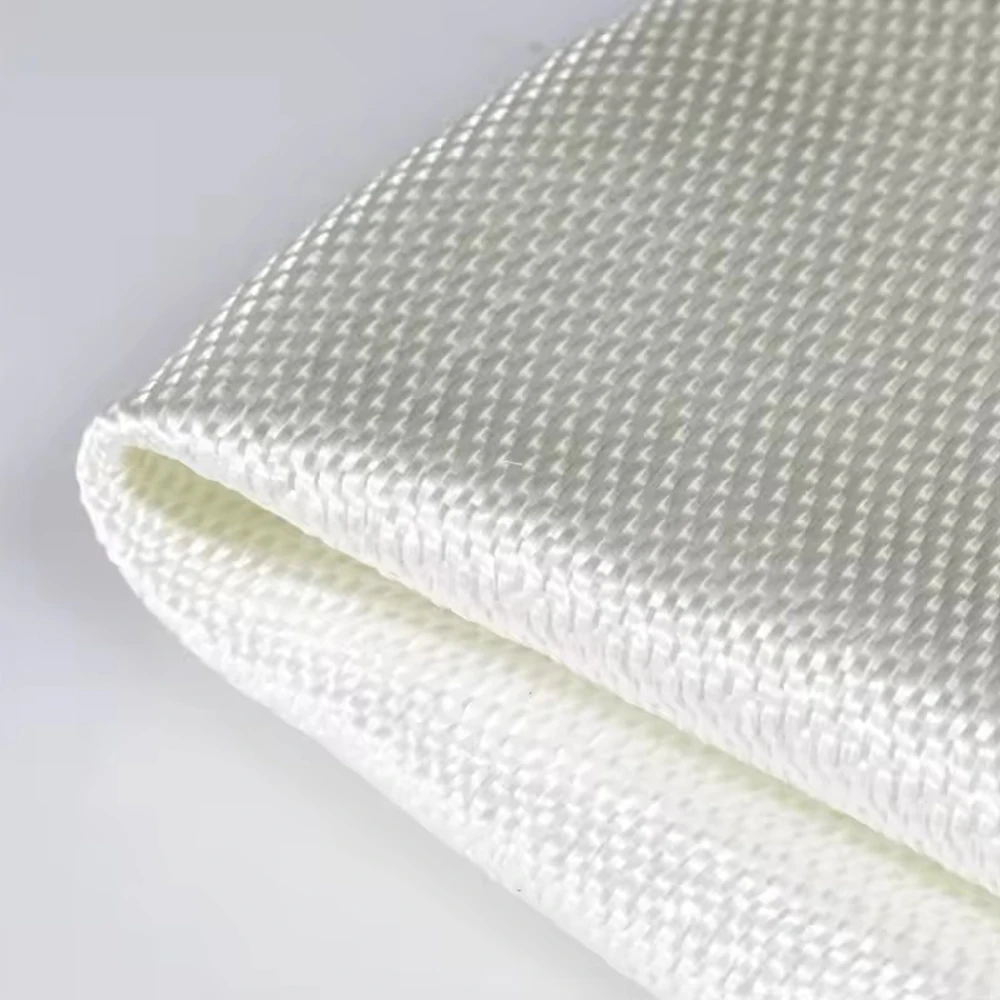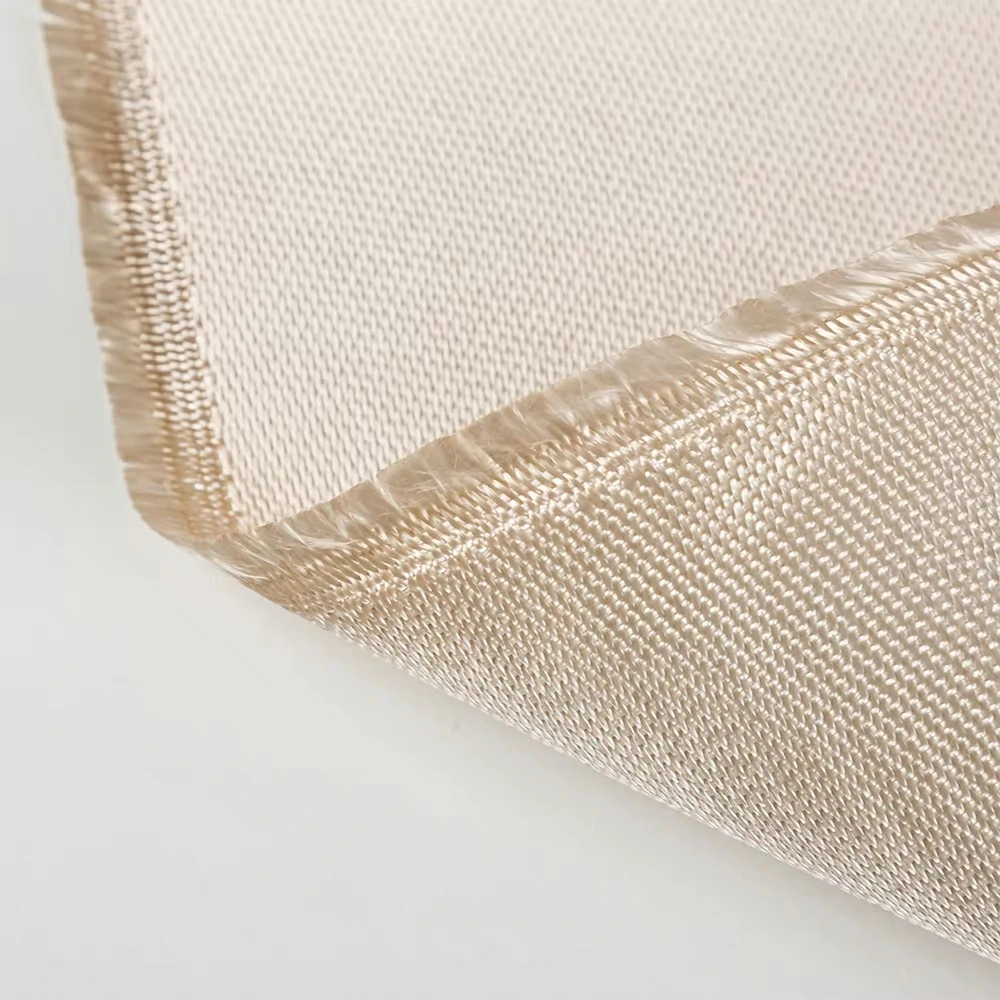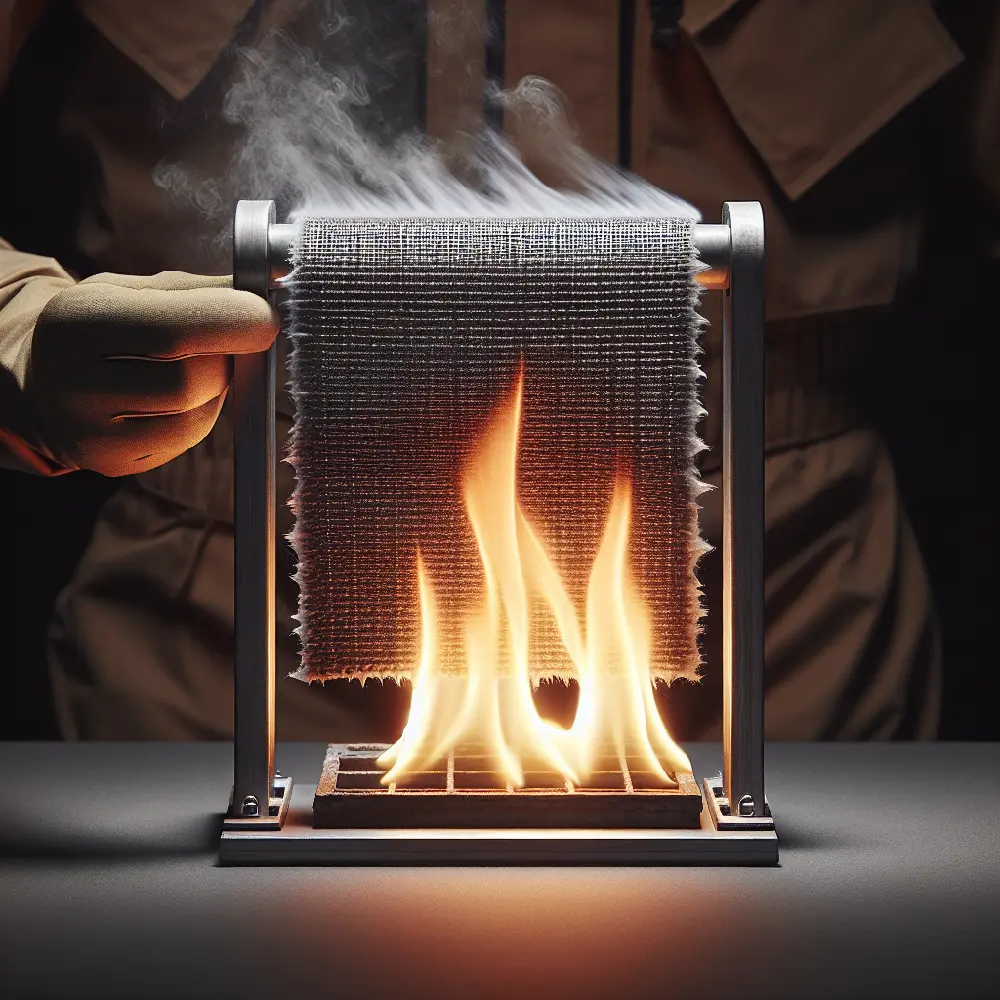
In the realm of fire safety, a fire blanket stands as a specialized piece of firefighting equipment designed to smother and extinguish small fires in their infancy. Comprising flame-retardant materials, these blankets serve as a vital component in the arsenal of tools aimed at preventing and managing fires. Unlike traditional fire extinguishers, fire blankets offer a unique approach to swiftly and effectively address incipient flames.

Fire prevention is a paramount concern in any production environment, and the integration of fire blankets plays a pivotal role in bolstering safety measures. These versatile blankets are particularly crucial in settings such as kitchens, gas stations, hotels, laboratories, and even caravans where fire hazards are inherent. As we delve into the technical parameters, we'll explore how these blankets, conforming to standards such as CE EN 1869:1997, provide a proactive defense against potential disasters.
The United States, known for its emphasis on fire safety, acknowledges the significance of fire blankets, promoting their use alongside other preventive measures. In corporate landscapes, where the stakes are high, having a well-rounded fire safety strategy that includes blankets and fire Extinguishers is imperative.
Fire safety is a shared responsibility, and having the right tools in place is crucial for swift and effective response. Fire blankets, often an unsung hero in the firefighting arsenal, come into play when a small fire needs immediate attention. These blankets are not only easy to use but also serve as a first line of defense before a situation escalates. Their flame-retardant nature and adherence to standards such as ANSI/FM 4950 and NFPA 701 underscore their reliability in critical moments.
As we navigate through the intricacies of fire safety, it becomes evident that incorporating fire blankets into the fabric of a comprehensive fire prevention plan is not just a regulatory requirement; it's a proactive step toward safeguarding both personnel and assets. In the dynamic landscape of corporate fire safety, being equipped with the right knowledge and tools is paramount – and fire blankets stand as an essential component in fortifying that defense.


Standard fire blankets serve as the fundamental line of defense against common fire scenarios. Designed for versatility, they are effective in the prevention of smothering small fires, including those originating from kitchen mishaps or electrical malfunctions. These blankets are an indispensable component of fire, offering a user-friendly and swift response mechanism.
Common standard Fire Blankets are mainly fiberglass fire-resistant blankets. The main advantages of this product are that it is cheap, easy to use, lightweight, and easy to carry and deploy.

Tailored to specific industries or environments, specialized fire blankets address unique fire risks. For instance, in laboratories or industrial settings where chemical fires may occur, specialized fire blankets with enhanced resistance and durability are essential. Size and thickness considerations play a crucial role in determining the suitability of these blankets for their intended use.
Usually, this type of fire blanket is also called a welding blanket. In addition to being used in special scenes such as laboratories, this type of welding blanket is more used in the field of light welding, relying on a strong acrylic coating or silicone coating, and a fiberglass base. Fabric that can withstand temperatures up to 1300 degrees Celsius.
Choosing the right fire blanket involves a thoughtful assessment of potential fire risks. Standard sizes such as 1*1 meters or customizable options like 1.5*1.5 meters accommodate diverse settings. The thickness, ranging from 0.43mm to 3mm, influences the blanket's effectiveness in extinguishing flames and providing heat insulation.

Fire blankets are made of various types of fire-resistant fabrics, of which the two most common types of heat-resistant fabrics are fiberglass and high-silica fabrics.
100% fiberglass is a fire-resistant fabric known for its excellent heat resistance. This material ensures the blanket can withstand high temperatures, providing a reliable fire barrier. However, fiberglass fabrics are irritating to the skin to a certain extent when touched, and such fabrics can often only be used once in the field of fire protection.
Another common fabric is high silica fabric, which has extremely high-temperature resistance and flame puncture resistance. The long-term use can reach 1000 ℃ (1832 ℉) and the softening point is close to 1700°C (3092° F). The extremely strong fire resistance of high silica makes it widely used in the field of welding. Its disadvantage is that the price is slightly higher than that of glass fiber fabrics.

Innovative coating and treatment technologies further enhance fire resistance. These technologies not only help improve the blanket's flame-retardant properties but also extend its service life, ensuring long-term reliability in critical situations.
The most common coated fabrics include silicone-coated fiberglass fabrics and silicone-coated high-silica fabrics. With the strong fire resistance of the basic fabric, the addition of coating technology makes the flame puncture resistance and high-temperature resistance of this type of fabric even more powerful. Compared with the fire-resistant basic fabric, this type of composite fabric product can be used repeatedly, especially silicone coated with high silica fabric, Heaterk has one customer even using it for welding on a drilling rig for up to 2 years.
Although from a business perspective, excessive use time will lead to a reduction in repurchase rates, Heaterk believes that our products are the final line of defense to protect life safety, and life safety is never a business!

Fire blankets adhere to rigorous European standards, particularly the CE EN 1869:1997 certification, ensuring their efficacy in fire prevention and firefighting applications.
In the United States, fire safety standards are maintained by organizations such as ANSI/FM 4950 and NFPA 701. Fire blankets designed for the US market comply with these standards, guaranteeing their suitability for various corporate environments.
In the dynamic landscape of fire safety, understanding the types, materials, and international standards governing fire blankets is pivotal. This knowledge empowers corporate fire blanket buyers to make informed decisions, aligning their choices with the specific needs and risks present in their environments.
Fire blankets operate on a simple yet highly effective principle of smothering the fire source. When deployed onto a small fire, the blanket's fire-resistant fabric swiftly covers and isolates the flames, cutting off the oxygen supply. This immediate and direct action is particularly advantageous in scenarios where speed is paramount, such as kitchen fires or electrical malfunctions. The blanket's ability to snuff out the fire at its source minimizes the potential for escalation.
Beyond smothering the flames, fire blankets provide essential heat insulation and reflection. The fiberglass composition of the blanket serves as a barrier, preventing the heat from reaching surrounding surfaces and materials. Additionally, the reflective properties of the material contribute to redirecting heat away from the affected area. This dual functionality not only aids in preventing the spread of the fire but also protects nearby objects from heat damage.
Fire safety extends beyond extinguishing flames, and fire blankets excel in protecting individuals from burns and injuries. When faced with a small fire, swift action using a fire blanket shields individuals from direct contact with flames, preventing burns and reducing the risk of injuries. This protective feature is especially crucial in settings where immediate evacuation might not be feasible, such as in confined spaces or industrial environments.
Advantages:
Rapid Response: Fire blankets offer a quick and easy-to-use solution for immediate response to small fires.
Versatility: Suitable for a wide range of environments, including kitchens, laboratories, and industrial settings.
User-Friendly: Requires minimal training and can be used by individuals with varying levels of firefighting experience.
Learn More About What Are The Benefits Of Fire Blankets?
Disadvantages:
Limited Size Coverage: While effective for small fires, fire blankets may have limitations in covering larger areas.
Single-Use: Once deployed, a fire blanket is typically a one-time-use tool and may need replacement.
Not Suitable for All Fires: Fire blankets are most effective on small, contained fires and may not be suitable for certain types of fires, such as those involving chemicals.
Learn More About The Advantages And Disadvantages Of Fire Blankets >>
In the realm of fire safety, fire blankets stand as a reliable and versatile tool. Their effectiveness in smothering flames, providing heat insulation, and protecting against burns makes them a valuable asset in any corporate fire prevention strategy. While understanding their advantages, it's equally important to be aware of their limitations and ensure they are used appropriately in conjunction with other fire safety measures.
Kitchen and Cooking Areas

In corporate settings, kitchens and cooking areas are frequent hotspots for fire hazards. Fire blankets play a pivotal role in swiftly addressing small fires caused by pan fires, oil splatters, or kitchen appliances. Their compact design and ease of use make them an ideal tool for employees, enabling them to tackle kitchen fires promptly. When considering the application of fire blankets in kitchens, the size and thickness parameters (eg, 1.2*1.2 meters, 0.43mm to 3mm thickness) become crucial, ensuring adequate coverage and effectiveness.
Welding Fields

The welding field, with its inherent risks of sparks and flames, demands specialized fire safety measures. Fire blankets designed for welding scenarios, with peak temperatures reaching 1000°F (540°C), provide a reliable shield against potential fires. These blankets, with variations in weight and thickness (eg, 30.00 oz/sq yd, 48 mils), offer both heat insulation and reflection, mitigating the risk of sparks catching fire and ensuring the safety of personnel in the welding environment.
Laboratories and Workshops
Laboratories and workshops often house materials and equipment that pose unique fire risks. Specialized fire blankets, conforming to stringent standards such as CE EN 1869:1997, find their application in these settings. The fire-resistant fabrics and coating technologies ensure protection against chemical fires, making these blankets integral to safety protocols. Size considerations (eg, 1.5*1.5 meters) and compliance with international standards further emphasize their suitability for use in laboratories and workshops.
Emergency Response and Evacuation Plans

Beyond specific areas, fire blankets play a crucial role in broader emergency response and evacuation plans. These blankets provide a quick and accessible means for individuals to tackle small fires before they escalate, aligning with the proactive approach advocated in fire prevention strategies. As part of an overall fire safety plan, fire blankets complement other safety measures, such as fire extinguishers and alarms, contributing to a comprehensive and effective response to potential fire incidents.
In the dynamic corporate landscape, the diverse applications of fire blankets underscore their versatility and importance in safeguarding both spaces and lives. By understanding the specific needs of different environments, corporate fire blanket buyers can strategically integrate these tools into their overall fire safety plans, fostering a secure and prepared workplace environment.
Fire safety is not a mere regulatory obligation; it is a proactive commitment to safeguarding lives, assets, and corporate continuity. The narrative of fire safety in corporate settings should be one of preparedness, where each employee is equipped with the knowledge and tools, including fire blankets, to respond swiftly to small fires. The advantages of these blankets, such as rapid response, versatility, and ease of use, should inspire a culture of vigilance and responsibility among corporate communities.
Heaterk's fireproof blanket and welding blanket series have been recognized and trusted by more than 130 customers. Explore Heaterk's fiberglass fire blanket or welding blanket series and add a new line of defense for your safety as soon as possible.
For further assistance and to explore tailored solutions for your corporate fire safety needs, feel free to reach out to our dedicated team. We are committed to providing reliable information, answering inquiries, and offering guidance on the selection, implementation, and maintenance of fire blankets. Your safety is our priority, and we are here to support your journey towards a more secure and prepared corporate environment.
Contact us at Contact Form for personalized consultations, training sessions, and additional resources to enhance your fire safety protocols. Together, let's build a safer tomorrow by embracing the proactive measures that fire blankets bring to the forefront of corporate fire prevention.
 Expert Guide: Choosing the Best Removable Thermal Insulation Jackets for Your Needs
Expert Guide: Choosing the Best Removable Thermal Insulation Jackets for Your Needs
 Understanding Fiberglass: Fire Safety and Heat Resistance
Understanding Fiberglass: Fire Safety and Heat Resistance
 Heat-Resistant Wonders: How High Silica Fiberglass Fabric Excels in Extreme Temperatures!
Heat-Resistant Wonders: How High Silica Fiberglass Fabric Excels in Extreme Temperatures!
 Is Kevlar Fireproof? Unveiling the Truth Behind Kevlar's Flame Resistance
Is Kevlar Fireproof? Unveiling the Truth Behind Kevlar's Flame Resistance